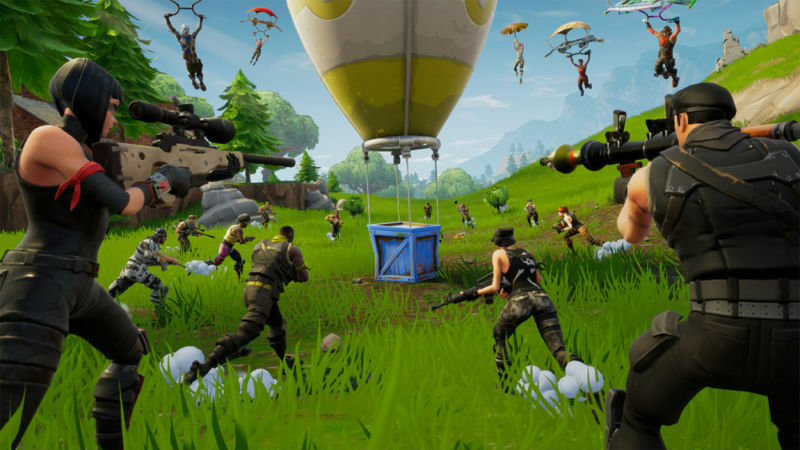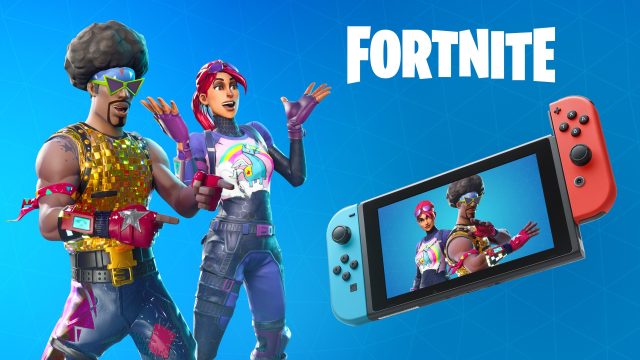
Apple can continue to block Epic Games' Fortnite from the iOS App Store as the parties move to a trial, Federal District Judge Yvonne Gonzalez Rogers said in a ruling issued late Friday.
In the 39-page ruling, Judge Rogers restates her previous finding that any harm Epic is currently facing to its Fortnite business, or to the game's reputation, is self-inflicted on Epic's part. The company brought about the current state of affairs when it issued a hotfix update offering a new Epic Direct Payments in-app purchase (IAP) system for Fortnite, a move that was in direct violation of its iOS App Store development contract with Apple."In short, Epic Games cannot simply exclaim 'monopoly' to rewrite agreements giving itself unilateral benefit," Judge Rogers writes in denying Epic's request for an injunction restoring Fortnite to the App Store. "The current predicament is of its own making."
If Epic truly wants to protect iOS users' access to Fortnite for the time being—as Judge Rogers writes and Apple has agreed to publicly—it can simply release a version of the game with the contract-breaking Direct Payments option removed. "To assist, the Court even offered to require the 30 percent [payment required by Apple's IAP program] be placed in escrow pending resolution of the trial which Epic Games flatly rejected," the judge writes. "The refusal to do so suggests Epic Games is not principally concerned with iOS consumers, but rather, harbors other tactical motives."
Conversely, Judge Rogers also finds that any retaliation by Apple against Unreal Engine development on iOS would cause irreparable harm to the wider game development market, including to companies not involved in the dispute. Though it's a "close question" whether Epic's Unreal Engine and Fortnite developer agreements are truly separate, in the end she found that "with respect to access to the developer tools (SDKs), Apple’s reaching into separate agreements with separate entities appears to be retaliatory, especially where these agreements have not been otherwise breached."
"The parties’ dispute is easily cabined on the antitrust allegations with respect to the App Store," Judge Rogers writes. "It need not go farther. Apple has chosen to act severely, and by doing so, has impacted non-parties and a third-party developer ecosystem. In this regard, the equities do weigh against Apple."
Previewing the case ahead
In denying Epic's request for a Fortnite injunction, Judge Rogers suggested it was much too early in the proceedings to say that Epic is likely to succeed on the merits of its arguments regarding Apple's monopoly power. "Too many unknowns remain," she writes. "As the parties acknowledge, this matter presents questions at the frontier edges of antitrust law in the United States. Simply put, no analogous authority exists."At the same time, Rogers is obviously treating Epic's arguments seriously, writing that the case "raises serious questions on the merits," and that "Epic Games has strong arguments" regarding Apple's potentially monopolistic conduct.

One of the key issues for the trial will remain the definition of the relevant market that is being allegedly monopolized here. Epic argues that it is fighting against Apple's monopolistic control of the narrow "iOS App Distribution Market," while Apple argues that "the relevant market must include competing platforms on which Fortnite is distributed and monetized."
Judge Rogers writes that both of these arguments are "plausible" at this stage. To Apple's point, Rogers notes that "the multiplatform nature of Fortnite suggests that these other platforms and their digital distributions may be economic substitutes that should be considered in any 'relevant market' definition because they are 'reasonably interchangeable' when used 'for the same purposes.'" In general, she writes, "courts have expressly cautioned against such a narrowing of the relevant market definition."
While Epic has made arguments that other gaming platforms are not true substitutes for iOS when it comes to Fortnite, Rogers writes that these arguments "have not been sufficiently tested." But the mere existence of such substitutes wouldn't necessarily be enough to protect Apple from being declared a monopoly. That's because those substitutes might "fail to affect enough customers to make a price increase unprofitable," the judge writes.
Determining which side has the stronger argument in this regard will rest on the answers to a number of factual question at trial, Rogers writes, including: "How many iOS users own multiple devices; how many iOS users would switch to another device in response to a price increase; and how many producers can afford to forego iOS customers altogether."
Rogers also notes that Epic has not yet shown that Apple's IAP system is illegally "tied" to the iOS App Store as a whole. On the contrary, Rogers writes that "the IAP system appears to be integrated with the App Store and, historically, to have never been a separate product."
But Rogers also notes that Epic "raises serious questions about the existence of separate demand for IAP-type services," which could affect that legal determination. "In this respect, Epic Games’ strongest argument—left woefully underexplored in the record—lies with competition on other features provided by IAP, such as customer service, parental controls, and security," Rogers writes. "This evidence suggests that a more fully developed record could plausibly show demand for a separate product."
With the ground rules set, and the status quo preserved, both parties will continue to prepare for a trial set to move forward next May. Users who want to play Fortnite on iOS before that trial concludes are left hoping that Epic has a change of heart and decides to abide by Apple's contractual rules for the time being.
reader comments
100